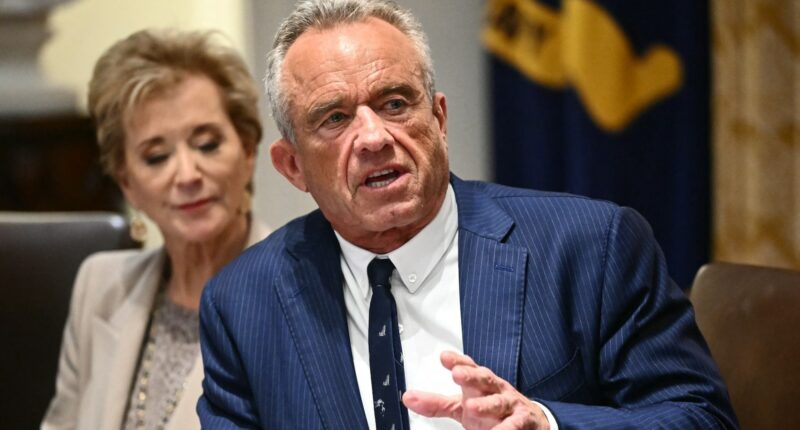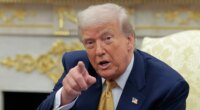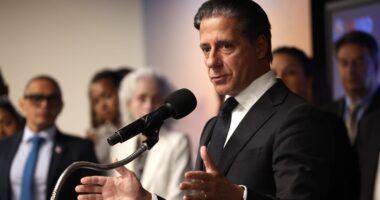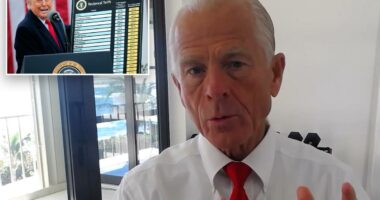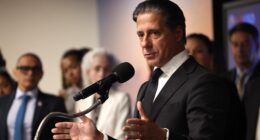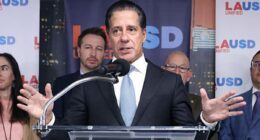Share this @internewscast.com
Following a week of rapid changes at the country’s health agency, Health and Human Services Secretary Robert F. Kennedy Jr. is set to appear before the influential Senate Finance Committee on Thursday. This committee has authority over his department and is expected to focus heavily on his vaccine policies during the questioning.
This appearance comes a week after the Food and Drug Administration (FDA) took significant steps to limit access to the COVID-19 vaccine. This decision led to public controversy and resulted in the dismissal of the recently appointed director of the Centers for Disease Control and Prevention (CDC), Susan Monarez. Additionally, four senior officials from the CDC have resigned in protest.
Under the new FDA guidelines, the COVID-19 vaccine is approved for people aged 65 and older and for younger individuals with underlying conditions that increase their risk of severe illness from the virus.
Health officials and pharmacy organizations have raised concerns that this adjustment will complicate access for young, healthy people who opt to receive the vaccine. It also brings up questions regarding vaccine availability and insurance coverage.
Thursday marks Kennedy’s first session of questioning by senators since May, when he defended significant workforce cuts at the department during committee hearings in both the Senate and the House.
Kennedy is likely to highlight the reforms he has implemented at the HHS, which he claims are designed to remove excessive bureaucracy and resolve conflicts of interest in public health agencies, hindering the pursuit of “gold-standard science.”
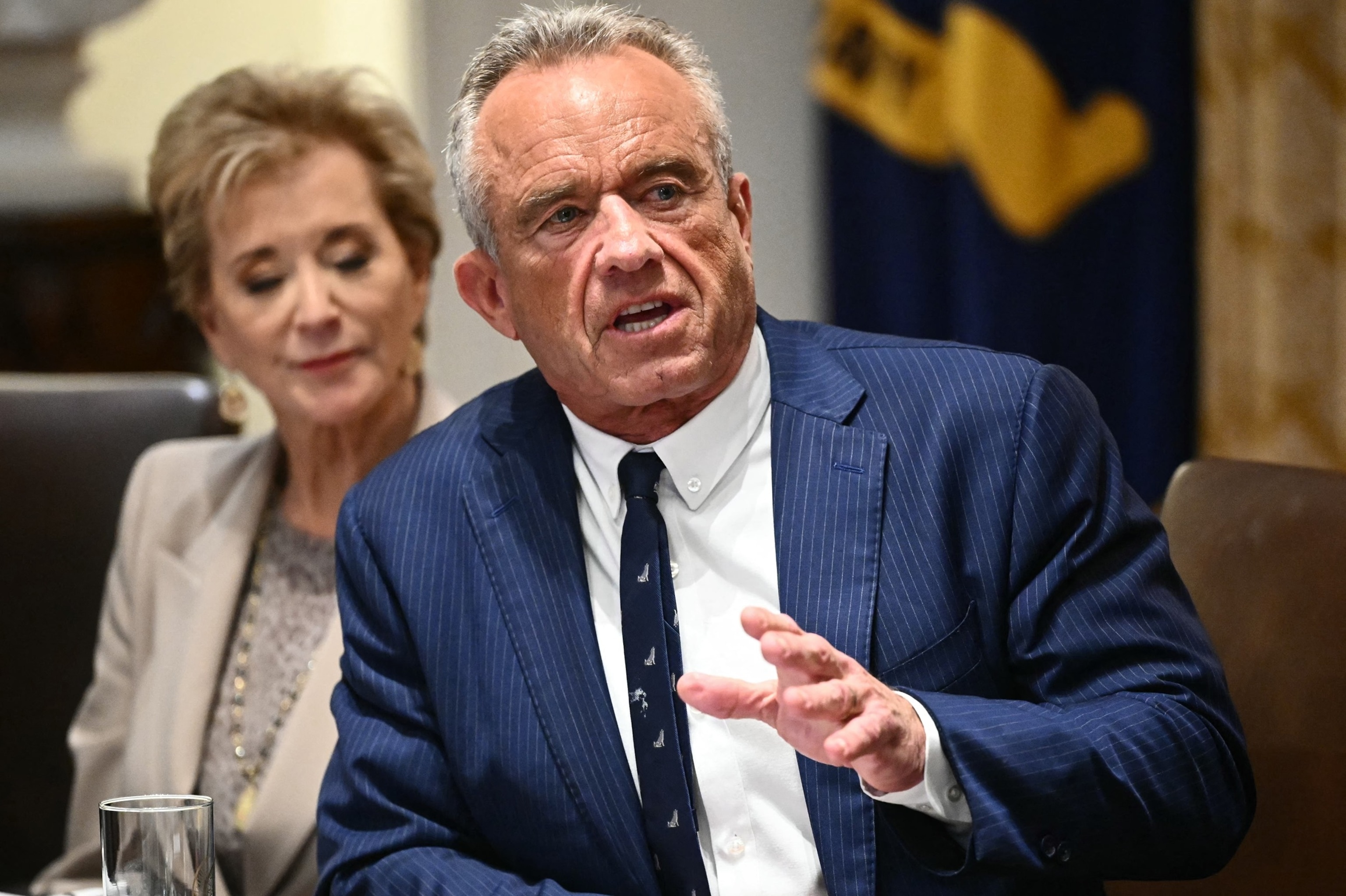
Secretary of Health and Human Services Robert F. Kennedy Jr. speaks during a cabinet meeting with President Donald Trump in the Cabinet Room of the White House in Washington, August 26, 2025.
Mandel Ngan/AFP via Getty Images
In a statement, HHS spokesperson Andrew Nixon said Kennedy will use the hearing to “reaffirm his commitment to Make America Healthy Again: restoring gold-standard science at HHS, empowering patients with more transparency, choices and access to care, and reestablishing trust in public health.”
While Republicans like Finance Committee Chairman Mike Crapo will attempt to keep the focus on chronic disease and Kennedy’s “Make America Healthy Again” agenda, Democrats and even some Republicans are expected to push Kennedy for answers on the FDA’s latest change as well as an upcoming CDC meeting on vaccines, which could lead to more changes to the nation’s vaccine policy.
The CDC’s Advisory Committee on Immunization Practices (ACIP), which discusses vaccine data and makes recommendations for which vaccines Americans should get and when, is going to weigh in on the FDA’s latest change, further informing insurance companies and pharmacies of how to carry out the policy.
But ACIP is also going to discuss a slate of different vaccines, including the COVID vaccine; hepatitis B vaccines; the measles, mumps, rubella, varicella (MMRV) vaccine; and the Respiratory Syncytial Virus (RSV) vaccine.
In June, Kennedy replaced all 17 sitting members of the committee with his own hand-selected members, including some who have expressed vaccine-skeptic views fervently sought to discredit the safety and efficacy of mRNA COVID vaccines.
Speaking to reporters on Tuesday, Republican Sen. Bill Cassidy of Louisiana, who sits on the Senate Finance Committee, said he had spoken to other members of his caucus who agreed that they needed to investigate what potential changes Kennedy and the CDC committee were weighing to the childhood vaccine recommendations.
“The issue is about children’s health, and there are rumors, allegations, that children’s health, which is at issue here, might be endangered by some of the decisions that are purported to be made. I don’t know what’s true,” Cassidy said. “I know that we need to get there. And I’ve talked to members of my Republican Caucus, several of them. They’ve agreed with me that we need to get at it.”
Cassidy, who pushed Kennedy during his confirmation hearings to issue support for vaccines and publicly struggled over his vote for him, has tasked the committee he chairs, the Senate Committee on Health, Education, Labor and Pensions (HELP), to do “oversight” of Monarez’ ousting, he wrote on X last week.
Cassidy maintained that he isn’t “presupposing someone is right or wrong.” “I just know we’ve got to figure it out,” Cassidy said.
Cassidy has also called for the CDC meeting to be postponed until “significant oversight has been conducted,” citing “serious allegations” about the “meeting agenda, membership and lack of scientific process.”

Sen. Bill Cassidy votes aye at the final moment as the Senate Finance Committee holds a roll call vote to approve the nomination of Robert F. Kennedy Jr. to lead the Health and Human Services Department, at the Capitol, Feb. 4, 2025.
J. Scott Applewhite/AP
Republican Sen. Susan Collins of Maine, who is on the HELP committee with Cassidy, told reporters on Wednesday that she is “concerned” and “alarmed” by Monarez’s firing.
“I know that the president has the right to fire whomever he wishes when it comes to that kind of appointment, but I don’t see any justification for it,” Collins said.
Monarez, who was in the job for only a month, was pushed out after she declined to fire top officials and support Kennedy’s vaccine policy changes in a meeting with the secretary early last week, a source familiar with her conversations with the secretary told ABC News.
“When CDC Director Susan Monarez refused to rubber-stamp unscientific, reckless directives and fire dedicated health experts, she chose protecting the public over serving a political agenda. For that, she has been targeted,” Monarez’s attorneys Mark Zaid and Abbe Lowell said in a statement late last week.
White House press secretary Karoline Leavitt told reporters President Donald Trump had fired Monarez because she “was not aligned with the president’s mission to make America healthy again.”
“It was President Trump who was overwhelmingly reelected on November 5,” Leavitt said. “This woman has never received a vote in her life, and the president has the authority to fire those who are not aligned with his mission.”
Other CDC officials who followed Monarez out the door included:
- Deb Houry, Chief Medical Officer and Deputy Director for Program and Science
- Dr. Dan Jernigan, Director of the National Center for Emerging and Zoonotic Infectious Diseases
- Dr. Demetre Daskalakis, Director of the National Center for Immunization and Respiratory Diseases
- Dr. Jennifer Layden, Director for the Office of Public Health Data, Surveillance, and Technology.
The officials cited the political climate and a refusal to accept science that didn’t align with Kennedy’s beliefs.
Daskalakis, in an interview on ABC News’ “This Week”, said he thought the changes Kennedy has so far made are “the tip of the iceberg.”
In addition to the recent FDA changes for the COVID vaccine, Kennedy has also canceled up to $500 million in research and development for mRNA vaccines and changed the COVID vaccine recommendations for children and pregnant women.
“I mean, from my vantage point as a doctor who’s taken the Hippocratic oath, I only see harm coming. I may be wrong. But based on what I’m seeing, based on what I’ve heard with the new members of the Advisory Committee for Immunization Practices, or ACIP, they’re really moving in an ideological direction where they want to see the undoing of vaccination,” Daskalakis said.

Federal workers wait in line to access to the Mary E. Switzer Memorial Building that houses the US Department of Health and Human Services in Washington, D.C., April 1, 2025.
Roberto Schmidt/AFP via Getty Images
Kennedy, when he testified in his confirmation hearings to be health secretary in January, denied that he was anti-vaccine and said he supports “the childhood schedule” for vaccinations.
“I am pro-vaccine. I am going to support the vaccine program. I want kids to be healthy, and I’m coming in here to get rid of the conflicts of interest within the agency, make sure that we have gold standard, evidence-based science,” Kennedy said.
When pressed by Democratic Sen. Ron Wyden of Oregon, Kennedy committed to supporting the measles and polio vaccines.
“Senator, I support the measles vaccine, I support the polio vaccine. I will do nothing as HHS secretary that makes it difficult or discourages people from taking either of those vaccines,” Kennedy said.
